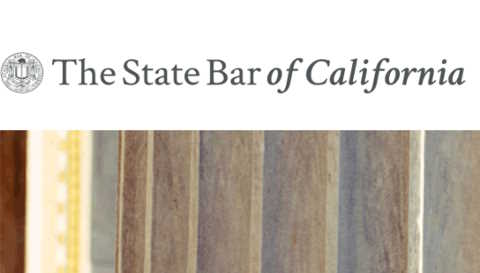Conflicts News — Analysis of Potential Trump Lawyer Conflict, Real Estate Conflict Caught and Punished
Posted on
“Does Trump’s lawyer have a conflict of interest?” —
- “The other day I saw a story with the title: ‘Trump lawyer’s ethics issue: He initially was approached by Daniels.’ In it, the author recalls the fact that the lawyer currently representing Trump in the case related to the hush money payment made to Stormy Daniels had been consulted by Ms. Daniels before he agreed to represent Trump. The article suggests that this means that Trump’s lawyer (Joe Tacopina) has a conflict of interest. However, I don’t think we have enough information to reach that conclusion… yet.”
- “What we know is that Stormy Daniels approached Tacopina about representing her but he declined. It appears that that ‘approach’ included at least one conversation between Daniels and the lawyer, but that does not necessarily mean that ‘an attorney-client relationship was established at the point of that consultation’ as the article states.”
- “When a person approaches an attorney to discuss whether the attorney will take on their representation what is formed is a relationship between the attorney and a prospective client, and the duties owed to a prospective client are different than those owed to a client.”
- “Whether the prospective client actually establishes an attorney-client representation depends on what transpires during the conversation(s) leading to the decision by the lawyer not to take on the representation. And that is the information we don’t have in this case.”
- “Having said that, assuming there was no attorney-client relationship formed, is there ‘an ethics issue’ as the article says? Assuming the rules that apply are the ones from New York, a lawyer shall not represent a client with interests materially adverse to those of a prospective client in the same or a substantially related matter if the lawyer received information from the prospective client that could be significantly harmful to that person in the matter although a different lawyer from the same firm could if certain conditions are met.”
- “Assuming all that as true, it could be argued that the lawyer violated a duty toward Stormy Daniels and could be subject to discipline for it.”
“Catonsville lawyer disciplined for conflict of interest in commercial lease deal” —
- “A Catonsville attorney who provided legal advice to a prospective commercial tenant without disclosing his ownership stake in the property where the tenant wished to move received a fully stayed 60-day suspension from Maryland’s Supreme Court this week.”
- “Ali M. Kalarestaghi will instead serve a 6-month probationary period, during which he can continue practicing law, in lieu of the suspension.”
- “The 62-page majority opinion, authored by Justice Michele D. Hotten, concludes that Kalarestaghi had an attorney-client relationship with the prospective tenant, an optometry practice called Catonsville Eye Associates LLC.”
- “Catonsville Eye wished to explore moving to a new location at 6567 Baltimore National Pike, which Kalarestaghi owned with his father and brother through an entity called MAH Mountain LLC, according to the opinion.”
- “First, however, Catonsville Eye needed help getting out of its existing lease for a commercial space on Rolling Road in Catonsville. Dr. Erick Gray, who handled the administrative aspects of the optometry business, wished to avoid paying double rent if he moved the business into the Baltimore National Pike location.”
- “Kalarestaghi introduced himself to Gray as the attorney for his father but did not mention that he had a 30% interest in MAH Mountain, according to the opinion.”
- “He agreed to review Catonsville Eye’s existing lease to determine if the business could terminate it early and offered his opinion in an email that the business was obligated to stay at the Rolling Road location through August 2017.”
- “‘This is legal advice, it is subject to attorney-client privilege, I cannot even share this review with my father, although you can,’ Kalarestaghi wrote in the email.”
- “Kalarestaghi then proposed a deal in which he would help negotiate an agreement to end Catonsville Eye’s current lease early. The business’s lease at the new location would include ‘up to $5,000 in free legal services’ to work out that agreement.”
- “Catonsville Eye had Kalarestaghi disqualified from serving as MAH Mountain’s lawyer because of a conflict of interest and ultimately countersued, according to the opinion.”
- “Hotten concluded that a stayed suspension was appropriate because the court did not find evidence that Kalarestaghi was intentionally dishonest or deceitful. He also has no prior history of discipline since his entrance to the bar in 2007. Epstein, the hearing judge, also found that Kalarestaghi offered sincere testimony and did not believe there was a conflict of interest.”









